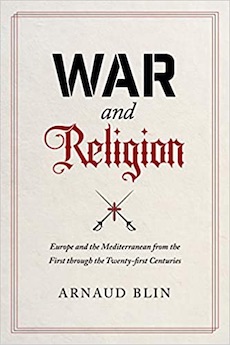By Fred H. Lawson
Four decades ago, a prominent scholar of English literature published a wide-ranging critique of the notion that religion constitutes the wellspring of politics in the countries of the Middle East and North Africa. The book, entitled Orientalism (1978), reconfigured academic research across nearly all disciplines and almost every region of the world, and enshrined as sacrosanct the contrary presumption that religion represents little more than a veneer that overlays the struggles for power, prestige, and wealth that actually propel events and trends in all societies and cultures. At the same time, significant episodes of world history that had previously been explained largely in religious terms—most notably the series of Crusades that pitted European expeditionary forces against a succession of Muslim dynasties—had started to be reinterpreted as strategic and commercial enterprises. The conjunction of these two analytical trends led several generations of historians, political scientists, sociologists, and others to play down or dismiss religion as the primary determinant of wars, revolutions, and military alliances.
Now the pendulum has swung back, and studies that claim to be revisionist assert that previously ignored religious factors lie behind a wide range of internal and international disputes, not only in the past but also in the present. Sweeping generalizations that connect centuries-old doctrinal schisms to subsequent armed conflicts, which would have been rejected out of hand a decade ago, have once again become acceptable. More tellingly, broad statements about Islam that leave no room for nuances of interpretation or practice among local communities of Muslims or from one era of Islamic history to another have reappeared in print, sometimes under the auspices of reputable university presses. Into this shifting intellectual milieu comes Arnaud Blin’s ambitious survey of the history of war and religion in a Mediterranean-centered arena that extends from Iran to Sweden to Spain and runs from the second century BCE to the seventeenth century CE.
How interstate conflict and religion have interacted across this broad sweep of space and time can be framed in at least three very different ways. First, Blin points out that religion’s “role in fueling or fostering war has largely been dictated by historical circumstances, rather than by an inherent propensity on the part of religious leaders or believers to generate violence.” Alternatively, “from a global perspective, religions taken as a whole have in many instances had little or no impact on the decisions that were made to go to war or on how it was waged.” Third, it is possible that “religion has been at the root of a conflict or its principal driver, as will be amply demonstrated in this volume.” Rather than keeping these three lines of argument separate, the book switches back and forth among them. At least it does so for the northern shore of the Mediterranean, that is, the Christian side. On the opposing littoral, readers are warned that “Islam was committed to violence almost from the very beginning, and violence has remained a part of its makeup, including its message.” Most scholars would probably stop reading at this point, mid-way through the introduction.
It would be a mistake to do so, however, and for three reasons. In the first place, Blin offers capsule descriptions of a whole variety of principalities, movements, and personalities that tend to get overlooked by what E. P. Thompson would call “the enormous condescension of posterity.” Just bringing these lost actors to mind opens the door for readers to consider pursuing new subjects of inquiry. In this sense, the book resembles Norman Davies’ remarkable Vanished Kingdoms (2012). Second, War and Religion provides a concise statement, or perhaps better a restatement, of the perspective on cross-Mediterranean relations that had been conventional prior to Orientalism and threatens to become commonplace again in the post-Iranian revolution, post-September 11, 2001, post-Islamic State era. Critics of that persistent orthodoxy would do well to be reminded how much work still needs to be done in order to revise or displace it.
Furthermore, engaging systematically with the divergent analytical hypotheses advanced by War and Religion, without privileging Blin’s preferred option that “in essence, religion was, during this period, the major driver of the wars that took place in Europe and in the greater Middle East,” can advance our understanding of precisely when and where wars emerge out of material circumstances but take on a religious coloring, when and where religion has no bearing on warfare, and when and where religion is the predominant cause of war. Carrying out this exercise will demand that what Blin calls “the Muslim world” be disaggregated in place and time, and be treated as a dynamic component of the disparate political and social orders have commanded at least half of the Mediterranean basin over the past two millennia.
Fred H. Lawson (ΦBK, Indiana University) is Professor of Government Emeritus of Mills College, and sometime Visiting Fellow of St. Antony’s College, Oxford.




